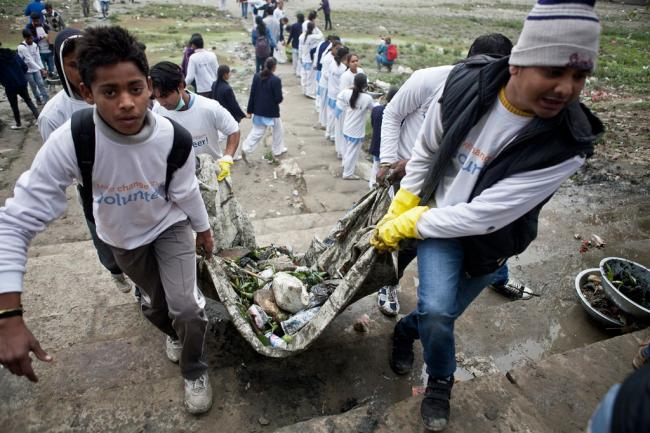
Fastest population shift in history means ‘make or break’ for Asia-Pacific – UN agency
Entitled Shaping the Future: How Changing Demographics Can Power Human Development, the report notes that Asia-Pacific countries now have more working-aged people and fewer dependents than at any point in history, providing a springboard for growth. Region-wide, 68 per cent of people are of working age and only 32 per cent are dependents.
“When countries have a greater share of people who can work, save and pay taxes, they have the potential to transform their economies and power investments in healthcare, education and other building blocks of future prosperity,” said UNDP’s chief economist Thangavel Palanivel, who is the lead author of the report.
‘9 Actions for Sustainable Development’
The study calls for immediate responses and outlines “9 Actions for Sustainable Development”– concrete policies tailored to the demographic profile of individual countries.
For States with a large working-age population, UNDP is calling for the creation of decent jobs to match the growing workforce, equal employment for women, and ways to turn savings into investments inside the region.
For countries with young populations, the agency says there is a need to invest in education and healthcare, smooth the transition from school to work and encourage youth participation in public life.
In older countries, the recommendation is to have governments design fair, sustainable pension systems, to support active ageing and to promote appreciation for the value of older citizens. This includes making sure that older people who want to work can bring their skills and experience to the market.
“The window of opportunity to increase productivity, invest in growth and save for the future is between now and 2050,” said Haoliang Xu, UN Assistant Secretary-General and UNDP Director for Asia and the Pacific. “If countries in Asia-Pacific do not create optimal employment conditions, the regional economy will begin to slow down by 2050 as the current working-age population begins to retire.”
With 58 per cent of all the working people on earth, UNDP is underlining that what happens in Asia-Pacific will affect countries far beyond the region.
“Growth, employment and migration in the west are inextricably linked to what happens in the east,” he said. “The sun rises here, but its effects are soon felt on the other side of the world.”
South-South cooperation
Findings show there is no one solution for every country, but the region’s diversity provides room for South-South cooperation. Governments are being told to share experiences on long-term fiscal planning, including the sustainable use of tax revenue. Cooperation can also encourage safe migration from younger to older countries within the region and reduce the desperate flight of migrants to Europe.
“With 50 years of expertise and offices in 24 countries in Asia-Pacific, UNDP is ideally placed to help implement the ‘9 Actions for Sustainable Development’,” said Haoliang Xu. “We can facilitate partnerships combining domestic, international, public and private funding and expertise on youth, ageing, migration, social protection, climate change and disaster risk management, governance, urbanization and technology transfer.”
Photo: UNDP India/Sudhanshu Malhotra
Support Our Journalism
We cannot do without you.. your contribution supports unbiased journalism
IBNS is not driven by any ism- not wokeism, not racism, not skewed secularism, not hyper right-wing or left liberal ideals, nor by any hardline religious beliefs or hyper nationalism. We want to serve you good old objective news, as they are. We do not judge or preach. We let people decide for themselves. We only try to present factual and well-sourced news.







